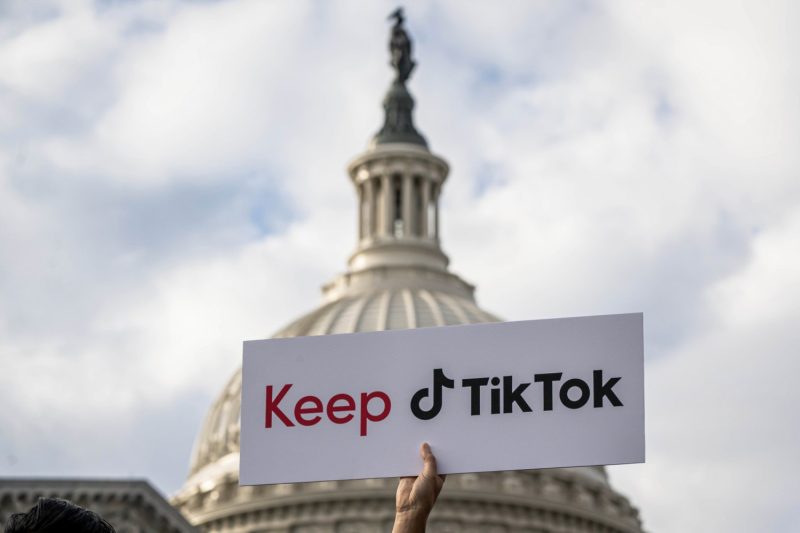
Fast Tracked: Congress OKs TikTok Ban, but Don’t Hold Your Breath for Implementation!
The recent decision by Congress to approve a potential ban on TikTok has stirred up a wave of uncertainty and debate around the popular social media platform. While this move signifies a significant step towards addressing national security concerns linked to Chinese-owned apps, the road to implementing such a ban remains complex and lengthy. Several key factors contribute to why it may take years before a TikTok ban comes into effect.
Firstly, legal challenges and court battles are inevitable in the wake of such a ban. Any attempt to block a widely-used platform like TikTok is bound to face resistance from users, companies, and even other governmental entities. Legal proceedings can be lengthy and intricate, dragging out the process of enforcing the ban for an extended period.
Additionally, the technology and infrastructure required to effectively block access to TikTok across the nation are daunting. Implementing a ban on a scale as massive as TikTok would necessitate sophisticated monitoring and enforcement mechanisms. Ensuring that users cannot bypass the restrictions, especially in an era where VPNs and proxy servers are readily available, poses a significant technological challenge that cannot be swiftly overcome.
Furthermore, the economic repercussions of a TikTok ban cannot be underestimated. The platform has created a vast ecosystem of content creators, influencers, and advertisers who rely on its reach for their livelihoods. Disrupting this ecosystem could have far-reaching consequences for the digital economy, potentially leading to legal battles, economic downturns, and job losses. The government will need to navigate these complex economic implications carefully before moving forward with a ban.
Moreover, diplomatic considerations also factor into the timeline of implementing a TikTok ban. The international nature of the internet means that blocking access to TikTok could strain diplomatic relations with China and other countries. Such tensions could result in retaliatory measures, further complicating the process of enforcing a ban.
In conclusion, while Congress’s approval of a potential TikTok ban signals a significant development in the ongoing debate around data privacy and national security, the journey towards implementing such a ban is rife with challenges and complexities. Legal battles, technological hurdles, economic consequences, and diplomatic considerations all contribute to why it could still be years before a TikTok ban takes effect. As stakeholders continue to grapple with these multifaceted issues, the fate of TikTok hangs in the balance, with its future uncertain yet intriguing.
